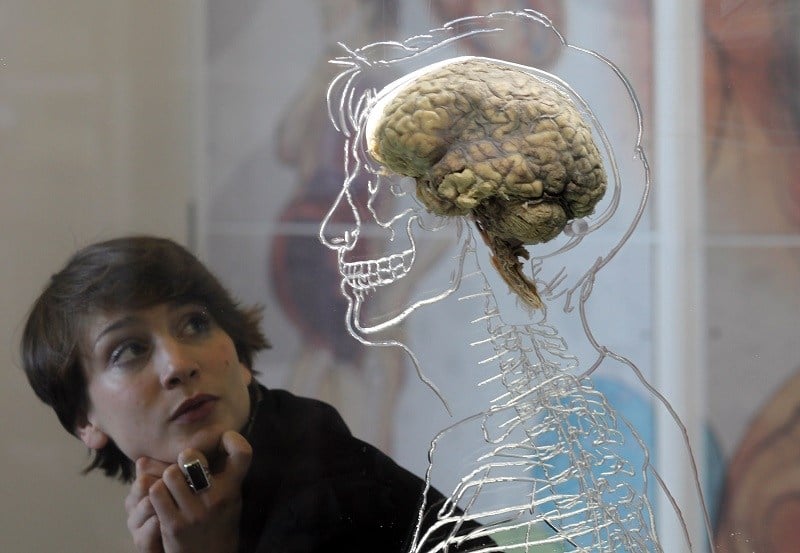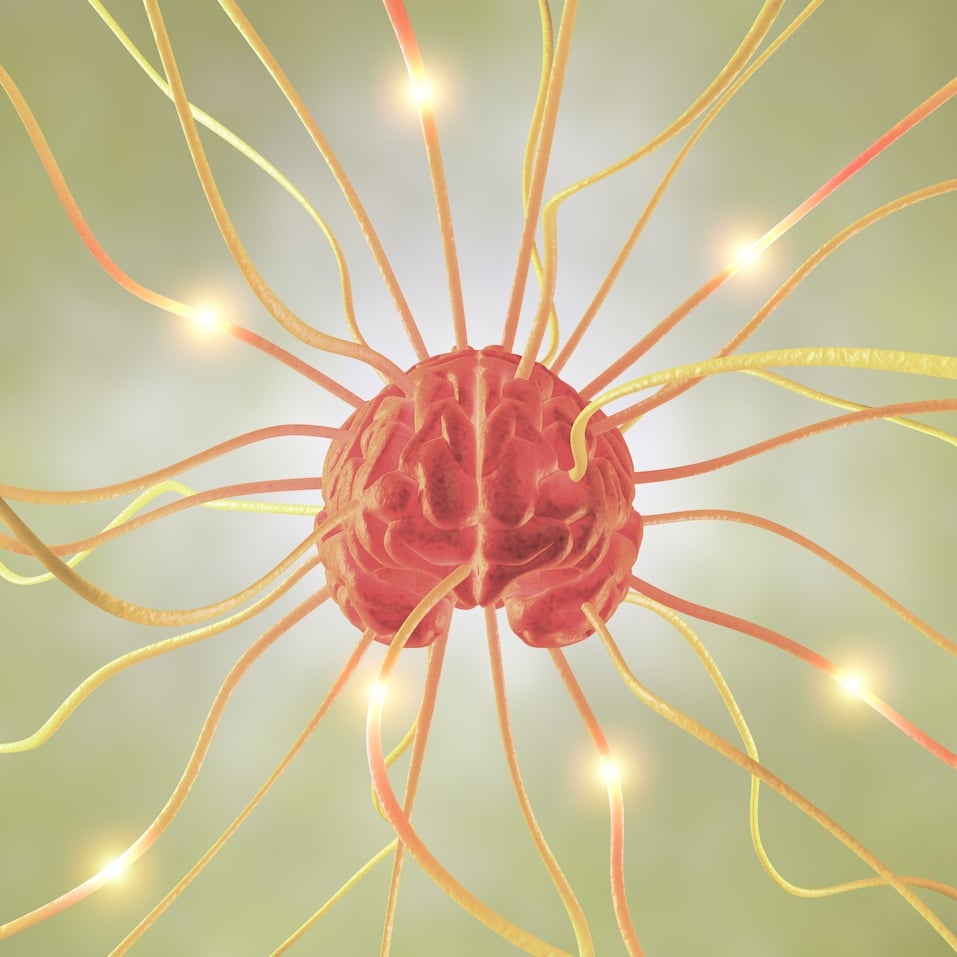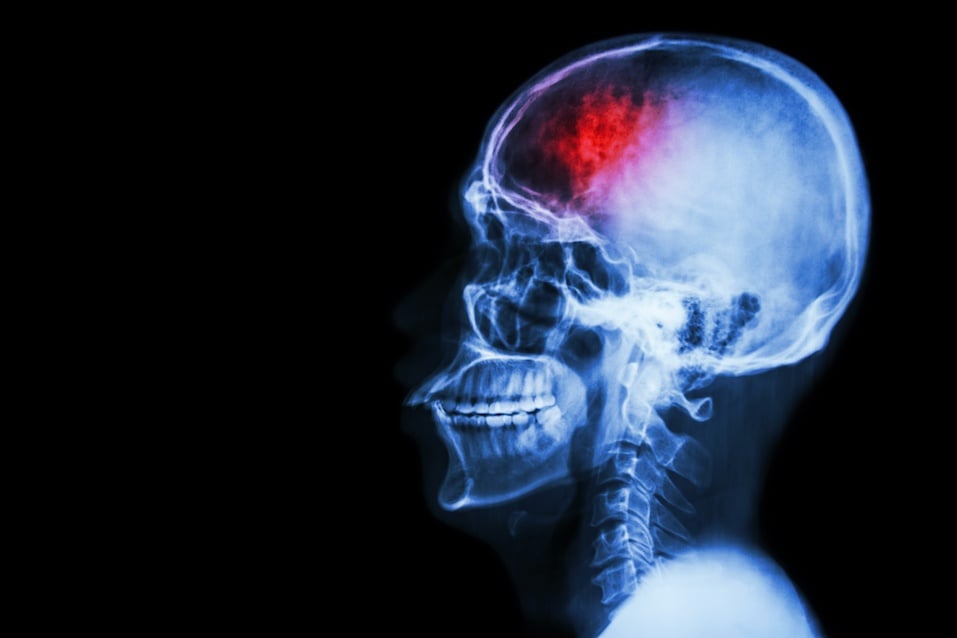Learn about brain health and nootropics to boost brain function
Surprising Ways Your Brain Changes After 50

You’re getting older — and you can tell that parts of your body just aren’t what they used to be. You’re feeling more aches and pains than usual, you’re a bit stiffer when you get up in the morning, and memories of years past may be a little fuzzier than expected.
The good news is that it’s totally normal for your brain to age just as your body does. But do you know exactly what happens to your brain once you’re over the hump of 50 and beyond? Here’s what’s really going on, including why you’re forgetting where your keys are more often (No. 10).
1. Your brain shrinks in size

Sorry, but this one’s unavoidable. TIME notes your brain naturally shrinks in size as you age, though there are also other factors that can cause your brain to reduce in size faster. As for health conditions that can induce this, high blood pressure and diabetes top the list. And lifestyle factors, such as cigarette smoking and having too much body fat, can also cause a decline in brain volume.
Brain shrinkage is associated with remembering details, making decisions, planning, organizing, and paying attention — so do all you can to keep your mind healthy.
Next: You’ll be surprised that this aspect of your brain actually improves with age.
2. Your ability to make decisions improves

Group of seniors hanging out together | Bowdenimages/iStock/Getty Images
Experience is king when it comes to making moral decisions — so it’s a good thing you gain more life experience as you age. The Independent notes even if your brain goes through some natural wear and tear, you’ll find it easier to make some decisions simply because you’ve probably had to make similar ones before. Researchers believe that just having this previous experience is enough to offset cognitive decline in some cases.
Next: Your brain also gets better at doing this.
3. Control over your emotions improves

If you had tumultuous emotions growing up, the good news is that your brain helps you regulate your emotions as you age. The Independent explains that research shows younger adults are more likely to ruminate on their feelings, while adults over 50 are more able to focus on the positive.
You may find yourself more able to cancel plans when they’re unappealing or skip projects that aren’t benefitting you anymore (no matter how much initial time you invested). And overall, this leads to a more satisfying life.
4. Reading social situations improves
Group of seniors hanging out together | Bowdenimages/iStock/Getty Images
You may have had trouble with your social skills early on in life, but there’s a good chance your ability to read social cues has actually improved with age. The American Psychological Association explains “the middle-aged mind is calmer, less neurotic and better able to sort it through social situations.”
Like regulating emotions, this probably has a lot to do with life experience. By the time you’re in your 50s and beyond, you’ve found yourself in plenty of social situations, making it easier for your brain to learn how to navigate them.
Next: Hated math as a kid? Try it again during middle age.
5. You’ll likely get better at math

Senior teacher pointing while gesturing against a whiteboard in a classroom | IPGGutenbergUKLtd/ Getty Images
You may not have fond memories of math class growing up. And you probably assume that unless you work in a field that involves equations, you’re way out of practice. But Business Insider notes you’re actually best at basic arithmetic when you hit 50 years old. This includes basic subtraction and division — which you probably do a lot more than you realize.
Next: It’s time to break out the Scrabble board for this reason.
6. Your vocabulary may become more robust

Once you’re in your 60s, you may be better at word puzzles than you ever were in your youth. Business Insider explains researchers found those in their 60s and 70s scored the highest on multiple-choice vocabulary tests compared to those younger in age.
This ability isn’t guaranteed just because you’re growing older, however. So if you hope to improve your vocab skills, it’s recommended that you continue to challenge yourself through word puzzles or a good, old-fashioned game of Scrabble.
7. Risk of developing depression decreases

Happy senior couple outdoors | Wavebreakmedia/iStock/Getty Images
Yes, your happiness will probably increase as you age, despite what you may have thought about middle age in your 20s. The Independent explains older adults tend to settle for options that fit their minimum requirements rather than trying to find the best possible option, which saves a ton of brain power. Younger adults are more likely to try and find the absolute best option in many situations, which can actually increase stress levels. And if the best option doesn’t live up to expectations, that can be severely disappointing, too.
8. New brain cells are still growing

Think your brain stops producing new cells once you’re out of your early years? The Independent reveals a study found elderly people grow as many new brain cells as teenagers.
The study found the neurons are grown in the hippocampus, too, which is where memory, emotion, and cognition is controlled. This also suggests that older people don’t experience cognitive decline as often as many think, as they’re still producing new neurons no matter their age.
Next: You may have been a daredevil in your youth, but not anymore.
9. Dopamine levels decrease, resulting in lower risk-taking

Senior woman reading a book at the park | Wavebreakmedia/iStock/Getty Images
There’s a reason you get more reserved in your risk-taking as you age, and you can blame lowered levels of dopamine for that. University College London reports your dopamine levels fall by up to 10% every decade throughout your adult life. And this chemical is responsible for knowing which actions you take will lead to rewards.
Researchers have found those with higher dopamine levels are more likely to take extreme gambles. With declining levels, you’re less likely to seek huge rewards — especially if risky behavior is involved.
10. Ability to access memories decreases

Unfortunately, age-related memory loss should surely be expected. Helpguide.org explains misplacing your keys or forgetting someone’s name is quite common, and it doesn’t necessarily have anything to do with the development of dementia. Naturally, your hippocampus, which is responsible for storing and retrieving memories, will deteriorate.
There are also plenty of ways you can help keep your memory sharp over the years, like maintaining a healthy diet and exercising regularly. If you feel like your memory loss is severe, ask your doctor about other possible causes.
11. Stroke risk increases

Film x-ray showing a skull with a stroke | stockdevil/iStock/Getty Images
As is the case with many diseases, your risk increases the older you get. The American Stroke Association explains every 10 years after age 55, your risk of having a stroke nearly doubles. And if the condition runs in your family, you’ll also want to be aware.
There’s plenty you should be doing to reduce your risk of having a brain attack. Keep your diet and physical activity in check, and if you have other conditions like high blood cholesterol or diabetes, you’ll want to get these under control, too. And of course, quit smoking cigarettes if you haven’t already.
12. Attention span may decrease

Senior couple at the movies watching a film | Monkeybusinessimages/iStock/Getty Images
If you can’t seem to sit through a long movie or engage in a lengthy conversation anymore, blame your aging brain. Business Insider explains a 2015 study from Harvard University found your ability to concentrate peaks around age 43.
If you’re younger than 43, this could be good news for you, as your mid-40s may be a time when your attention span is at its finest. For those in their 50s and beyond, though, don’t expect your brain to focus on one task for as long as it used to.
13. Many ‘mini-strokes’ have probably occurred

Even if you never have a full-blown stroke, that doesn’t mean smaller brain attacks haven’t already happened without you realizing it. Psychology Today reports diminished blood flow on a lighter scale can cause mini-strokes, which may last mere minutes or a few hours depending on the severity. Because they’re so quick, they can go totally undetected — and by the time you reach old age, you may have had several.
Over time, having multiple mini-strokes can cause major damage and increase the likelihood of developing dementia.
14. Your reaction time slows

Seniors high-fiving at a table | Rawpixel/iStock/Getty Images
Researchers who studied over 3,000 people found the brain’s reaction time starts to decline a lot earlier than you think, PBS reports. While you may expect your reflexes to slow by middle age, it turns out your reaction time actually peaks around age 24. This means you’re certainly losing your reflexive abilities as early as your 30s.
The upshot is that the study found the older participants were able to use strategy and efficiency to make up for their slower reaction times. It seems your wisdom may come in handy.
15. Your ability to recognize faces diminishes

Two senior couples looking at photographs around a garden table and smiling | Liz Gregg/Getty Images
When it comes to remembering faces, you might think you’re pretty decent. But researchers found that you’re actually the best at facial recognition when you’re in your 30s, Business Insider notes. In fact, “super-recognizers,” or those with a superior ability to remember the face they’ve seen, are mostly in their 30s.
That’s not to say you’ll suddenly forget the faces of those closest to you, though. But if you meet someone new, don’t be too hard on yourself if you don’t remember them the second time.
Click here to view full article